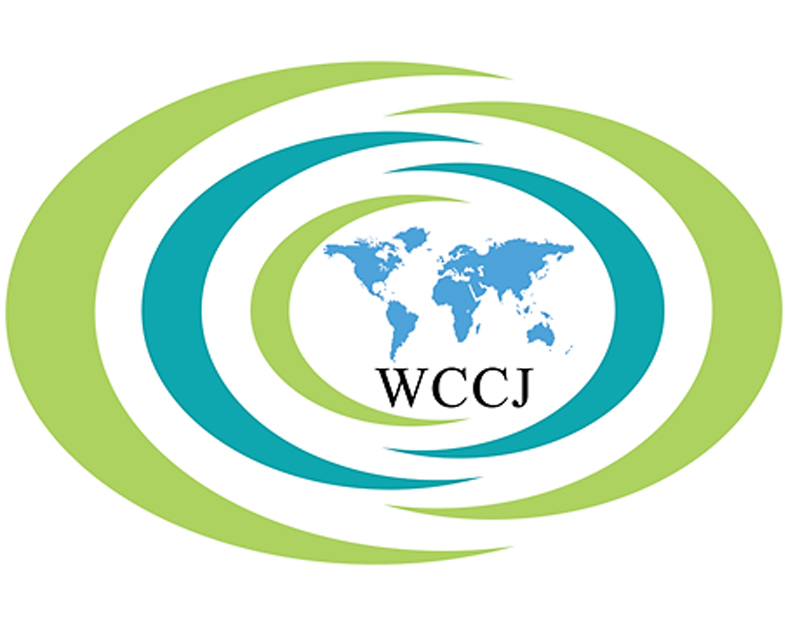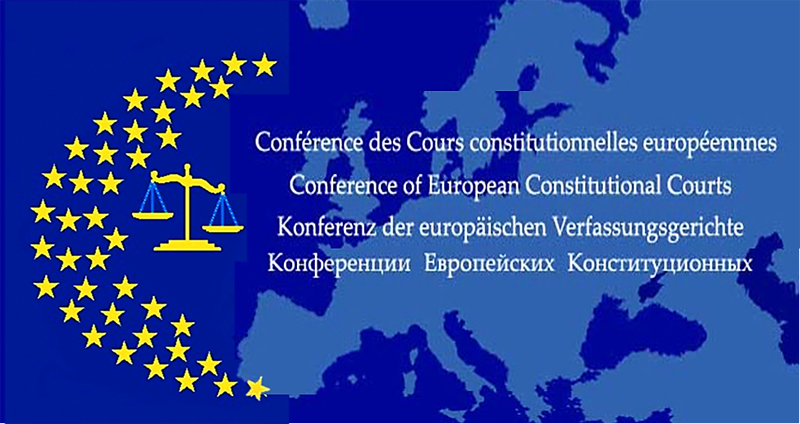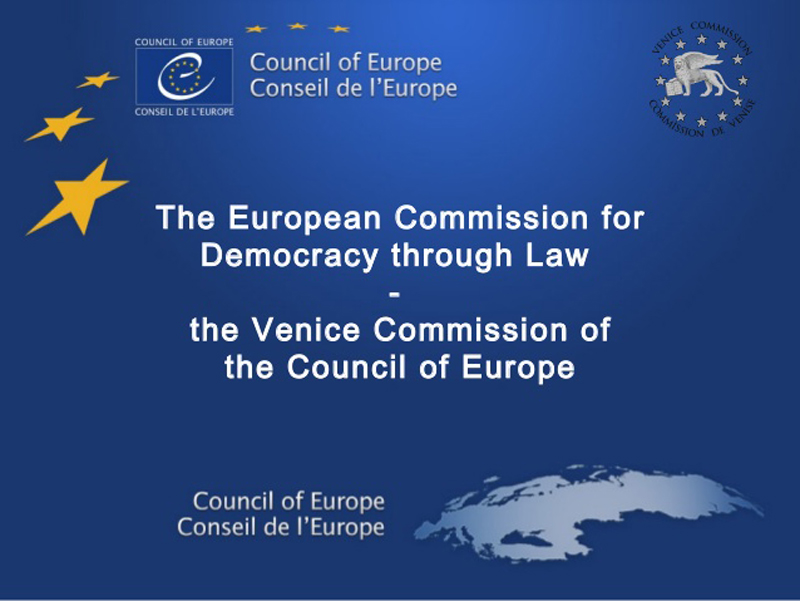Membership in international institutions and organizations
WORLD CONFERENCE ON CONSTITUTIONAL JUSTICE
 The World Conference on Constitutional Justice unites 120 Constitutional Courts and Councils and Supreme Courts in Africa, the Americas, Asia and Europe. It promotes constitutional justice – understood as constitutional review including human rights case-law – as a key element for democracy, the protection of human rights and the rule of law.
The World Conference on Constitutional Justice unites 120 Constitutional Courts and Councils and Supreme Courts in Africa, the Americas, Asia and Europe. It promotes constitutional justice – understood as constitutional review including human rights case-law – as a key element for democracy, the protection of human rights and the rule of law.
The first Congress of the World Conference on Constitutional Justice was held in Cape Town, South Africa from 23 to 24 January 2009, in co-operation with the Venice Commission and the Constitutional Court of South Africa. Pursuant to a declaration adopted on this occasion the Venice Commission prepared a draft Statute, which was discussed at the Second Congress of the World Conference on Constitutional Justice held in Rio de Janeiro, Brazil (16 to 18 January 2011). On this occasion the Statute was amended and it was finally adopted at the XV Congress of the Conference of European Constitutional Courts in May 2011. With the accession of more than 38 states it entered into force in September 2011.
The World Conference pursues its objectives through the organisation of regular congresses, by participating in regional conferences and seminars, by promoting experiences and case-law and by offering good services to members on their request (Article 1.2 of the Statute).
The main purpose of the World Conference is to facilitate judicial dialogue between constitutional judges on a global scale. Due to the obligation of judicial restraint, constitutional judges sometimes have little occasion to conduct a constructive dialogue on constitutional principles in their countries. The exchanges that take place between judges from various parts of the world in the World Conference furthers reflection on arguments, which promote the basic goals inherent in the national constitutions. Even if these texts often differ substantially, discussion on the underlying constitutional concepts unites constitutional judges from various parts of the world who are committed to promote constitutionality in their own country. As these judges sometimes find themselves in situations of conflict with other state powers due to the decisions they had to hand down based on the Constitution, being part of the World Conference provides them with a forum that not only allows them to exchange information freely with their peers, but where judges from other countries can also offer moral support. This can be important in upholding constitutional principles, which the judges are called upon to defend in their line of work.
The second Congress of the World Conference on Constitutional Justice on the "Separation of Powers and Independence of Constitutional Courts and Equivalent Bodies" was held in 2011 in Rio de Janeiro, Brazil, and the third Congress in 2014 in Seoul, Republic of Korea on the "Constitutional Justice and Social Integration." The fourth Congress took place in Vilnius, Republic of Lithuania, on the Rule of Law and Constitutional Justice in the Modern World. The fifth Congress on Constitutional Justice and Peace was held from 4 to 7 October 2022 in Bali; while the sixth took place in Madrid from 29 to 30 October 2025 and addressed human rights for future generations. The next Congress will be held in Egypt in 2028.
The Constitutional Court of the Republic of Croatia has been a full member of the World Conference since July 2011.
CONFERENCE OF EUROPEAN CONSTITUTIONAL COURTS
 The Conference of European Constitutional Courts was set up in 1972 by the constitutional courts of Germany, Austria, Italy and the former Socialist Federal Republic of Yugoslavia. Many other courts joined the Conference, particularly in the last decade.
The Conference of European Constitutional Courts was set up in 1972 by the constitutional courts of Germany, Austria, Italy and the former Socialist Federal Republic of Yugoslavia. Many other courts joined the Conference, particularly in the last decade.
The association currently numbers 40 European constitutional courts and other similar European institutions exercising constitutional jurisdiction. The Conference organizes regular specialized conferences with the aim of experience exchange with respect to constitutional practice and jurisprudence in the general European context. The association creates, maintains and encourages regular contacts between constitutional courts and other equivalent bodies.
The chairmanship of the Conference of European Constitutional Courts, rotating every three years, can only be held by a court that is a full member of the Conference. In the period from 2024 to 2027 the Conference is chaired by the Constitutional Court of the Republic of Albania.
The Constitutional Court of the Republic of Croatia has been a full member of the Conference since 1993.
FORMS AND LIMITS OF JUDICIAL DEFERENCE: THE CASE OF CONSTITUTIONAL COURTS
HUMAN RIGHTS AND FUNDAMENTAL FREEDOMS: THE RELATIONSHIP OF INTERNATIONAL, SUPRANATIONAL AND NATIONAL CATALOGUES IN THE 21ST CENTURY
ROLE OF CONSTITUTIONAL COURTS IN UPHOLDING AND APPLYING CONSTITUTIONAL PRINCIPLES
COOPERATION OF CONSTITUTIONAL COURTS IN EUROPE – CURRENT SITUATION AND PERSPECTIVES
Questionnaire and the topic of the XVIth Conference of European Constitutional Courts, Vienna, Austria, 12 - 14 May 2014
CONSTITUTIONAL JUSTICE: FUNCTIONS AND RELATIONSHIP WITH THE OTHER PUBLIC AUTHORITIES
Questionnaire and the topic of the XVth Conference of European Constitutional Courts, Bucharest, Romania, 23 - 27 May 2011
PROBLEMS OF LEGISLATIVE OMISSION IN CONSTITUTIONAL JURISPRUDENCE
Questionnaire and the topic of XIVth Congress of the Conference of European Constitutional Courts held in Vilinus, Lithuania, 3 - 6 June 2008
THE CRITERIA OF THE LIMITATION OF HUMAN RIGHTS IN THE PRACTICE OF CONSTITUTIONAL JUSTICE
Questionnaire and the topic of the XIIIth Conference of European Constitutional Courts, Nicosia, Cyprus, 15 - 19 May 2005
COMMISSION FOR DEMOCRACY THROUGH LAW OF THE COUNCIL OF EUROPE (Venice Commission)
 The European Commission for Democracy through Law - better known as the Venice Commission as it meets in Venice - is the Council of Europe's advisory body on constitutional matters. The role of the Venice Commission is to provide legal advice to its member states and, in particular, to help states wishing to bring their legal and institutional structures into line with European standards and international experience in the fields of democracy, human rights and the rule of law. It also helps to ensure the dissemination and consolidation of a common constitutional heritage, playing a unique role in conflict management, and provides "emergency constitutional aid" to states in transition.
The European Commission for Democracy through Law - better known as the Venice Commission as it meets in Venice - is the Council of Europe's advisory body on constitutional matters. The role of the Venice Commission is to provide legal advice to its member states and, in particular, to help states wishing to bring their legal and institutional structures into line with European standards and international experience in the fields of democracy, human rights and the rule of law. It also helps to ensure the dissemination and consolidation of a common constitutional heritage, playing a unique role in conflict management, and provides "emergency constitutional aid" to states in transition.
The Commission has 61 member states: the 47 Council of Europe member states, plus 14 other countries (Algeria, Brazil, Chile, Costa Rica, Israel, Kazakhstan, the Republic of Korea, Kosovo, Kyrgyzstan, Morocco, Mexico, Peru, Tunisia and the USA). The European Commission and OSCE/ODIHR participate in the plenary sessions of the Commission. Its individual members are university professors of public and international law, supreme and constitutional court judges, members of national parliaments and a number of civil servants. They are designated for four years by the member states, but act in their individual capacity. The Commission covers three areas: democratic institutions and fundamental rights; constitutional and ordinary judiciary; elections, referendums and political parties. Its permanent secretariat is located in Strasbourg, France, at the headquarters of the Council of Europe. Its plenary sessions are held in Venice, Italy, four times a year.
The Constitutional Court of the Republic of Croatia has been associate member of the Venice Commission since 1994, and full member since 1996.
Authorized representatives of the Constitutional Court regularly participate at the working meetings of the Venice Commission on constitutional justice issues in member states.
The Constitutional Court organizes, together with the Venice Commission, various international symposiums and seminars which deal with the problems of constitutional jurisprudence in member states.
The Constitutional Court regularly prepares reports and articles on Croatian constitutional-court justice and case law for the Bulletin of Constitutional Case-Law, the official publication of the Venice Commission. The contributions for the Bulletin (published three times a year) are supplied by a liaison officer appointed by the Court.
VENICE COMMISSION DOCUMENTS AND E-PUBLICATIONS
Joint Council on Constitutional Justice, Mini-conference "Gender, equality and discrimination", 2018